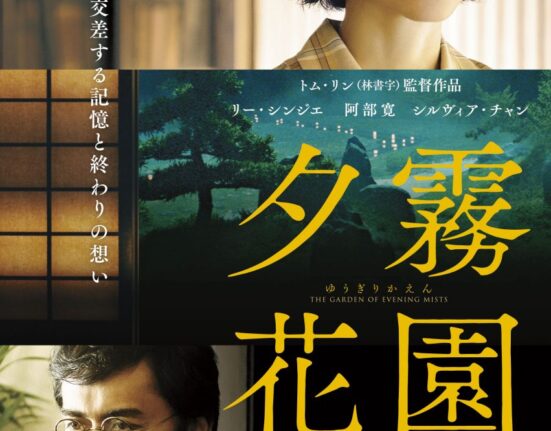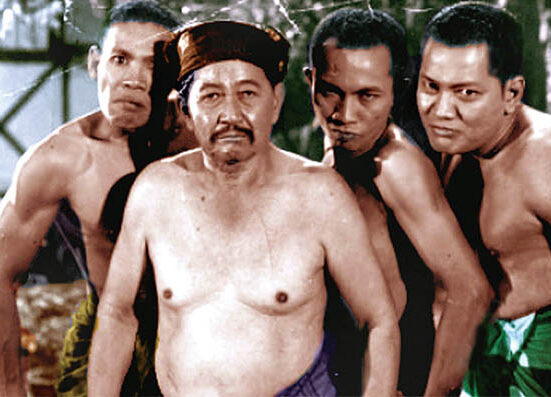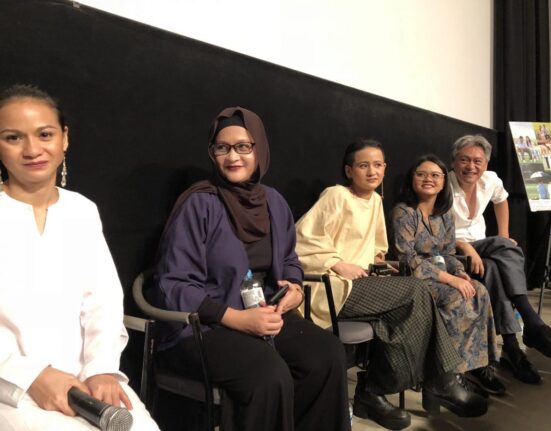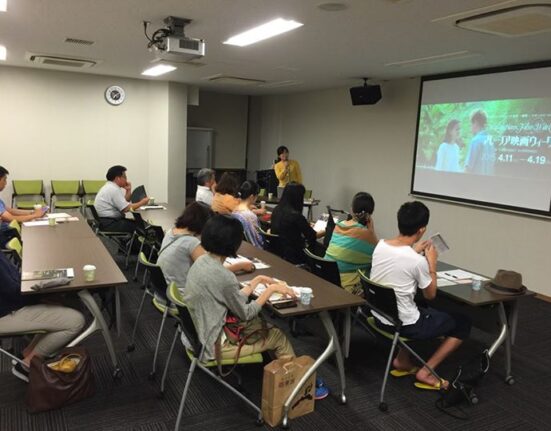今回のWAU映画コーナーは、昨年のマレーシア映画祭(2016)で最優秀作品賞を受賞、2017年の大阪アジアン映画祭でも特集上映された、マレーシアの映画『JAGAT』(ジャガット)についてご紹介しています。
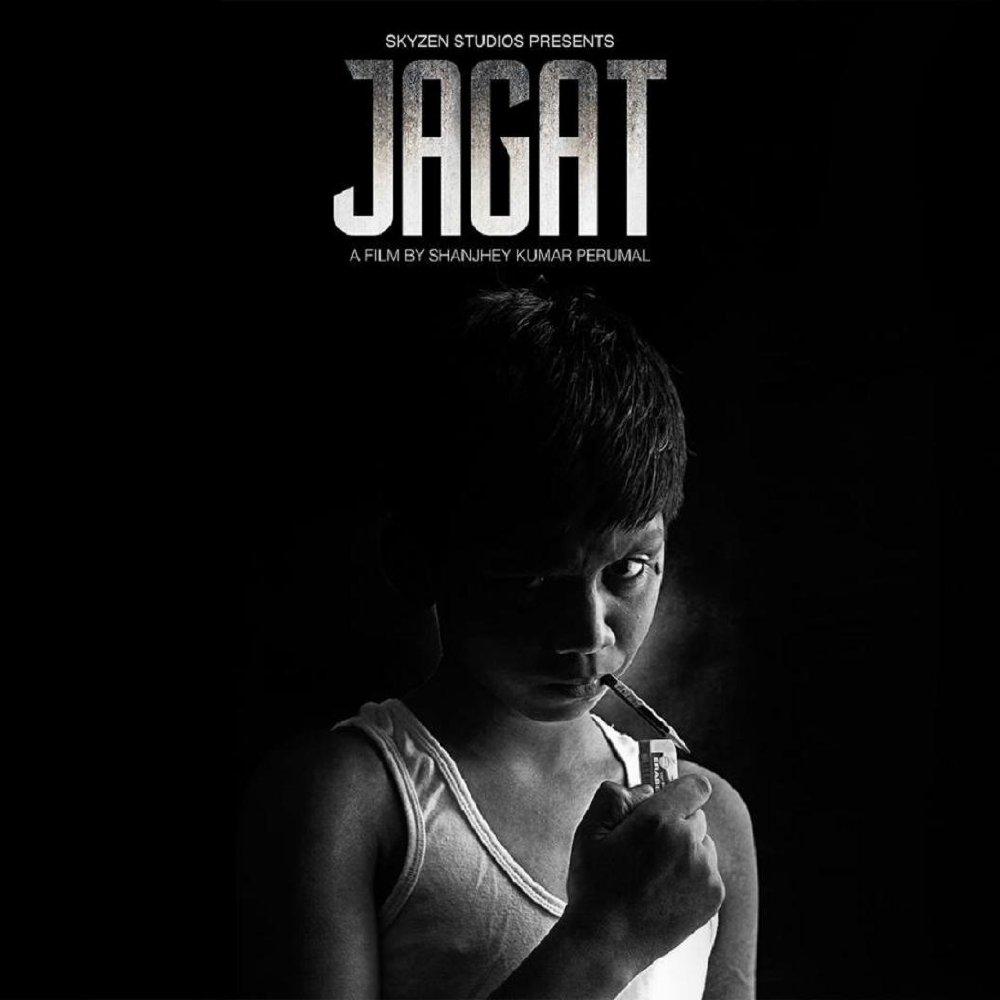
同作品で、最優秀新人監督賞を受賞された、サンジェイ・クマール・ペルマル監督に、日本マレーシア学会会員、マレー語通訳、翻訳家の戸加里康子さんがインタビューし、WAUのために寄稿してくださいました。
今回その全文を、ノーカットでご紹介させていただきます。(WAUでは、紙面の都合上、一部を抜粋してご紹介いたしました。一部情報や写真が重複することをご了承ください)
『JAGAT』をご覧になっていない読者の方が多いと思いますので、ここで簡単にあらすじをご紹介させていただきます。
〜あらすじ〜
主人公の少年アポイは、インド系マレーシア人の家庭に育つ、独創的な感性を持つ少年。音楽や芸術が大好きで、ついつい学校の勉強よりも熱中してしまう。そんな時は、いつも教育熱心な父親からの厳しい折檻が待っていた。学校でも自由な発想で描いた絵を先生からダメだしされ、家では、マイケル・ジャクソンのモノマネのために一生懸命作った衣装を父親にビリビリにされてしまう。周りからも変わった子だと思われ、同級生や先輩からもいじめられるが、それでも彼は屈することはしなかった。そんなアポイの理解者は父親の兄弟、彼のおじたちだった。彼らはアポイを一人前として扱ってくれたが、彼らは、中華マフィアのギャングの一員だった。アポイは、叔父たちの過酷な人生に大きく影響されていく。
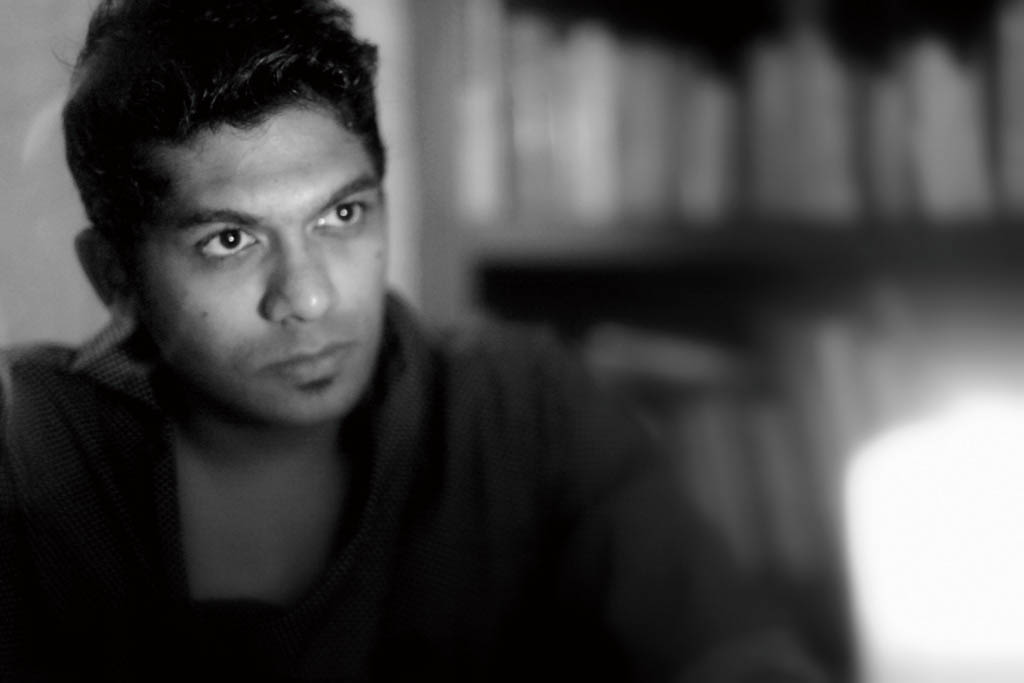
ご自身について教えてください。
(映画監督になった経緯、これまで何本ぐらい作品を撮っているのかなど)
Can you share with us a little bit about yourself? (How you became film director and so far how many films did you direct & etc.)
私はマレーシア、ペラ州の小さな町の出身です。小さい時から映画監督になりたいと思っていました。マレーシア科学大学(USM)でマス・コミュニケーション(テレビ&映画)を専攻した後、2004年にクアラルンプールに移り、テレビ業界で数年働きました。テレビで旅番組、ドキュメンタリー、子ども&女性向けの番組を作る一方、自分のために短編映画を撮っていましたが、テレビでは自由に自分の表現ができないため、しばらくしてテレビの仕事を辞めることにしました。2011年に自分の制作会社を設立し、2015年に初監督作品「Jagat」を作りました。
I’m from a small town in Perak state of Malaysia. I always wanted to be a filmmaker since I was a kid. I studied mass communication (major in TV and film) in University Science of Malaysia. I moved to KL in 2004 and worked in TV industry for few years. Used to make travelogs, documentaries, Children & Women programs for TV while making shortfilms for passion. After sometimes I decided to quit TV since I couldn’t express myself freely. In 2011 I founded my own Production house and in 2015 I made my debut film ‘Jagat’.
なぜ「Jagat」を撮ろうと思ったのですか?
(ストーリーのアイデアはどこから?)
What made you to want to make the film, “Jagat”?
(How do you get the idea for the story?)
「Jagat」は私自身の半自伝的な作品です。私はずっとこの話を人に伝えたいと思っていました。TV番組を作っている時は、何を見せるべきか、何を見せないべきかは、テレビ局側が決めていて、それにうんざりしていたんです。「Jagat」はそのシステムに対する、私なりの復讐のようなものです。
Jagat is an semiautobiography of myself. I always wanted to tell the story to the world. When I was doing TV Programs, I was fed up when the TV stations have stich guidance on what to show and what not to. Basically ‘Jagat’ is my revenge to the system.
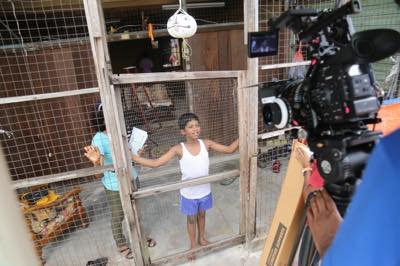
「Jagat」は半自伝的な作品だということですが、あなたも小さいときは主人公の少年アポイのように、勉強よりアートの方が好きだったんでしょうか。そしてお父さんには、もっと勉強するように怒られたりしていたのでしょうか。
You said Jagat is like a semi-autobiography for you. So does that mean you are like Appoy when you were a kid, ie more interested in arts than study, and did your father always scold you and tell you to study harder?
私は勉強とアートの両方に興味がありましたが、アートは私にとって常に特別なものでした。映画の中で表現したかったのは、子どもの可能性を理解することができないシステムについてです。私の父も本当に厳しかったのですが、私のアートに対する興味も理解し、サポートしてくれました。大学ではどのような学問を学んでもいいと言ってくれたんです。小学校から高校まで、そして大学においても、私は本当の知識というものを探していました。しかし私が受けることができたのは、平板で古びた教育でしかなかったと思っています。大学教育を終えたときに、本当の知識への欲求への答えは、自分自身で探し出さなければならないと気づいたのです。
I had interest in both academic and arts. Art was always special to my heart. What I was trying to express in the film is on how the system couldn’t able to understand a child extra potential. My father was really strict but he was supportive in my arts efforts. He gave green light for me to pursue any studies (at university). From primary school until secondary even until university I was looking for the real knowledge but what I’ve been receiving was a plain, lame education in my opinion. I’ve found my answer for real knowledge thirst upon completing my university education on which I’ve searched on my own.
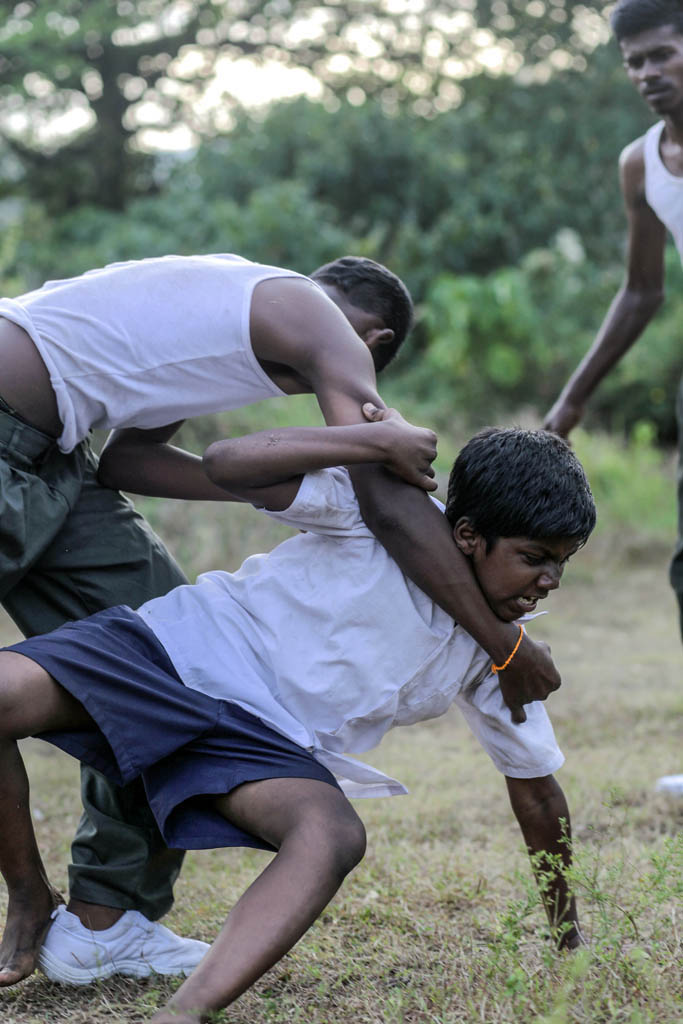
この映画では、マレーシアのインド系をとりまく様々な社会問題、例えば経済的困難、ギャング行為などが描かれているように思います。そうした問題についてはどのように考えていますか。
I think various social problems surrounding Indian in Malaysia are depicted in this film, such as economic hardship, gangsterism etc. How do you see those problems?
イギリス植民地時代、インド系移民はゴム農園で働くためにマレーシアにつれてこられました。私たちはそうした農園で200年間働きましたが、マレーシアが独立すると、政府は、人口の多数を占めるマレー系を重視した新しい経済政策を導入します。マイノリティに対する適切な発展計画が行われることはありませんでした。80年代になるとFELDAと呼ばれる制度が導入されました。政府の土地を開墾し、数年そこで働くと、土地が自分のものになるという制度です。これも主にマレー系を対象にしたもので、インド系を対象にした同様の制度はありませんでした。このため多くのインド系は不満を抱えるようになります。農園で働いていた時には、少なくとも人々はコミュニティの中で生活をしていました。若者は年長者を敬わなければならず、寺院があり、遊び場があり、一緒に過ごすことができたのです。その制度がなくなった時、彼らはアイデンティティを失いました。働き方もわからず、多くの人がギャングになってしまいました。ドラッグに溺れる人もいました。少数の人は多少の成功を収めることができ、本当に少数ですが、医者になったり、弁護士になったりした人もいました。しかし多くの人は、あまり教育の必要のない、肉体労働者、例えばトラックの運転手などになりました。そのため多くの人々が喪失感を味わっていました。80年代から90年代の変革の時期に、多くの人はアイデンティティを探し求めました。私は今でも多くの人がアイデンティティを失ったままなのだと思っています。そして(国としての)インドの大衆文化を、誤って自分たちのアイデンティティであると思ってしまっていると思います。自分の周囲にある外部からの影響ではなく、自分自身の内部の改革が最も重要だと私は思います。外部からの変革を私は信じません。社会に生きるそれぞれ個人が覚醒した時、コミュニティは自動的に覚醒するものだと思っています。
Indians were brought to Malaysia by the British colonial rule to work in the rubber plantations. We worked in these plantations for 200 years, but after the Malaysian government gained independence they later began introducing a new economic policy which gave much attention to the Malays, the majority. There was in fact no proper transformation plan for the minority people. In the 80s, a system called FELDA was introduced, where they give you some land, and when you work on that land, after some years the land belongs to you. This was intended mostly for Malays, and a similar system doesn’t exist for the Indians. Because of this, there were many disaffected Indians in Malaysia. With the plantations, there was at least a system whereby people live in a community, the young people must respect the elder people, there are temples, they have a playground, they are together. When you remove that system, they lose their identity. They didn’t know how to work, so a lot of people ended up in gangs. Some into drugs, and a small number of people had some success in life. But a very small number came out as doctors, lawyers, etc. A lot of people became lorry drivers because it’s manual work and you do not need to study much. A lot of people end up feeling lost in life because of all these factors. So, that transformation period in the late 80s and early 90s is when a lot of people were searching for their identity. I think in general people still lost the identity and mistakenly adopted some other elements as their identity such as India’s popular cultures. More than surrounding and external impacts I think the most important thing is inner self revolution. I don’t believe in outer revolution. When each single person in the society awakens the community awaken automatically.
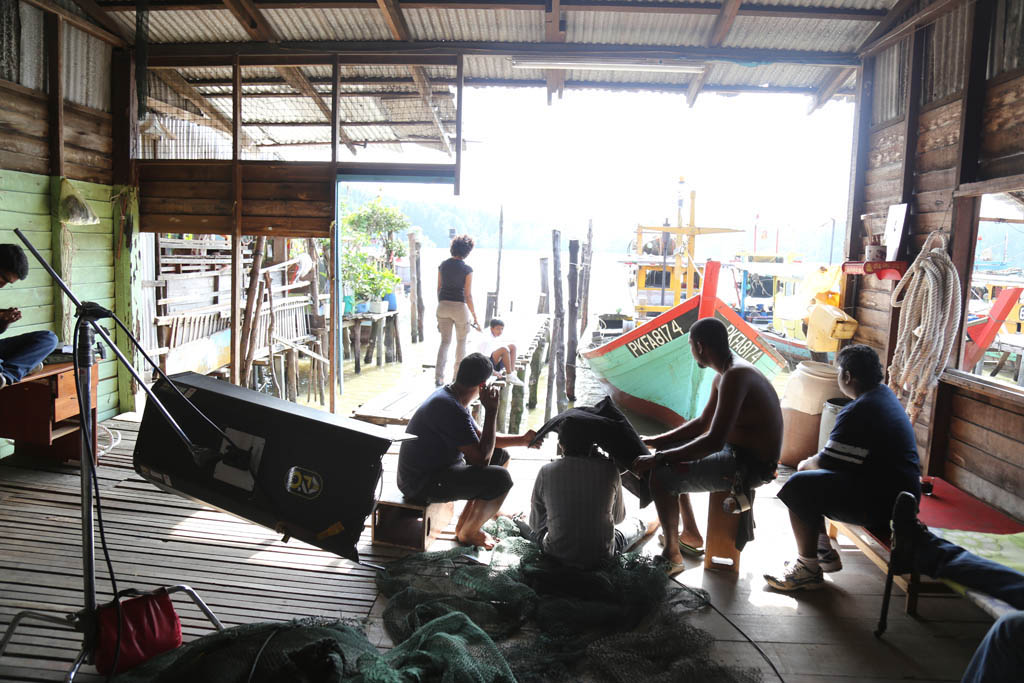
映画の中で気に入っているエピソードやシーンはありますか?
Your favourite episode or scene in the film, if any?
いくつかあるのですが、一番自分にとって懐かしさを感じるのは、バラ(主人公のおじ)がアポイ(主人公の少年)の目の前でドラッグを使うところです。実は私の本当のおじ『バラ』も、私の目の前でドラッグをやっていたのです。おじは私のことを信用して、大人のように扱ってくれました。私はまだ12歳だったので、他の人たちは子ども扱いしかしてくれなかったのですが。バラおじさんは多くの知識や人生の経験について語ってくれました。おじは私がドラッグに手を出さないように、自分が破滅していく姿を見せたのです。そしてそれは今でも私に生きています。プロデューサー候補の何人かに、このシーンの話をしたところ、多くの人は拒絶しました。検閲委員会にも、大人の男が子どもの前でドラッグを手にするなんて、悪い見本じゃないかと言われたのですが、私にはそれは当てはまりませんでした。私たちは子どもをみると子ども扱いしてしまいがちですが、子どもは子どもなりに、私たちが考えているよりもはるかにしっかりしているものです。よいか悪いかは別にして、現代の子どもは以前に比べて、多くの事柄にさらされています。単に説教をするのではなく、適切な方法で語りかける方が、子どもたちも耳を傾けるものだと信じています。
A few scenes, but the one that really nostalgic to me is the scene where Bala took the drugs in front of Appoy. It happened to me when my uncle ‘Bala’ too used to take drugs in front of me because he trust me and really treat me like an adult, while others used to treat me like a kid when I was 12. Uncle Bala used to share many knowledge and life experience to me. He wants me to witness his downfall so that I never touch drugs in my life, and it works for me until now. Many people rejected the scenes when I narrate it to possible producers, even the censorboard at certain point being hesitant on how could a man take drugs in front of kids, it’s bad example, but different case for me. The problem is we still treating kids like kids, but in my opinion kids are more mature in their own way. Nowadays kids are being exposed with so many things than before, be it good or bad. Rather than preaching bluntly, if told in a nice way, the kids will listen I believe.
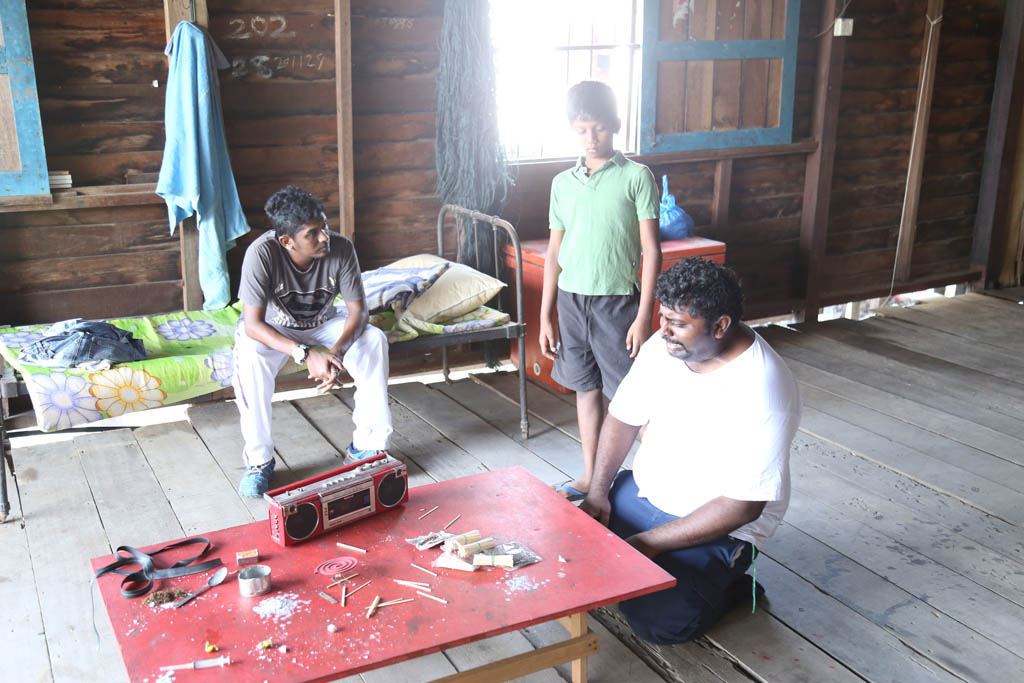
キャストの多くはプロの俳優ではないと聞きました。なぜプロではない人で撮影しようと思ったのですか?
I heard most of the casts are not professional.
Why did you want to work with them and not professional actors?
マレーシアのインド系/タミル系の俳優は、インドの大衆文化から大きな影響を受けています。マレーシア映画の中で、独自のスタイル、自分たちの声を作り出そうとしていないのです。そのため、俳優ではない人たちを探さなければなりませんでした。少なくとも彼らは本当の姿を見せてくれるからです。
Most Indian /Tamil actors in Malaysia still under heavy influence of India popular culture. People here don’t really intend to create own style /voice in Malaysian films. That’s why I was forced to look out for the non-actors who at least can give me the realism output.
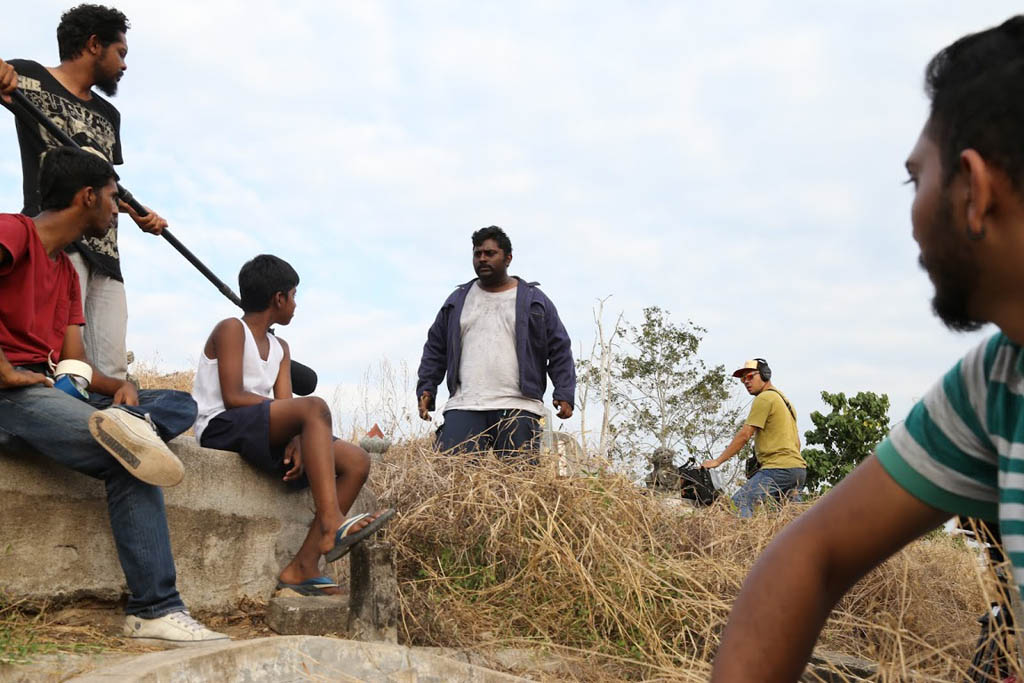
どのように彼ら(特に主人公を演じた少年)を探したのですか?
And how did you recruit them (especially the boy who acted main role)?
彼らの多くは、以前私と仕事をしたことがあります。ドラッグ中毒の「バラ」を演じたセンティルは、私の撮影監督でしたし、マニアム(アポイの父親)を演じたクベンは助監督、メキシコを演じたジブライルは地元のタミル系のロック歌手なのですが、旅番組のホスト役としてテレビ局に紹介したことがあります。ハルヴィン・ラージ(アポイ)とはドキュメンタリーを撮っている時に偶然学校で知り合いました。キャスティングの中で気をつけていたのは、見た目が一般の人に近いかということと、仕事に対する姿勢、そして学びたいという気持ちがあるかということです。彼らの中にはそれがあったので、参加してもらうことにしました。
Most of them are the one used to work with me. Senthil who played ‘Bala’ character, the drug addict character is my DOP, while Kuben who played Maniam character (Appoy’s father) is my AD, while Jibrail who played Mexico character is a local Tamil rock star, who I used to introduce him for TV as Travelog VJ. I met Harvin Raj (Appoy) accidentally in a school when I was shooting a documentary. The first thing I look for the casting is the face cut (the one close to the ordinary people) and their attitude towards work and eagerness to learn. Since I could see these qualities in them, I cast them.
監督をするうえで難しかったことは?
Any difficulties to direct?
テレビ番組や短編映画を製作したり、監督している時にも、プロの俳優ではない人と仕事をしていました。プロではない人と仕事をするのはもちろん大変ですが、贅沢な制作環境ではないところで働くことが多かったので、その点では頭が痛くないということもありました。俳優には役柄に何か新しい価値をつけてほしいと思っていますが、それはプロの俳優にしか求めることはできません。プロでない人と撮影するときには、監督が全てをコントロールし、彼らが演じることができるよう、ほとんど全てのものを与える必要があります。
Since from my TV show/shortfilm producing/directing days, I have always have been working with the non-actors. Of course, its damn hard to work with non-actors, but I found it less headache since I’m used to work below production luxury. I always wanted the actors to add value to the characters, that only can happen when you work with professional actors, with non-actors, the directors have to control and contribute almost everything to get the performance from them.
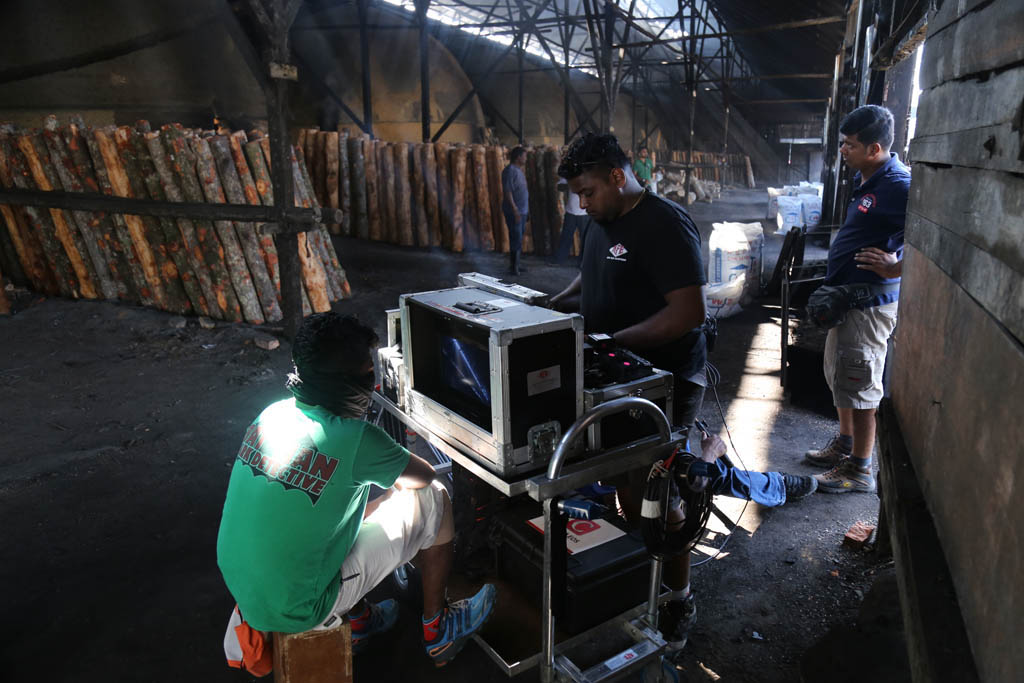
どうしてタイトルに、マレー語起源の言葉である「Jagat(悪)」とつけたのですか?
Why you put the title “Jagat” from Malay words?
マレーシアではマレー系が人口の多数を占め、タミル系、華人系はマイノリティです。地元のギャングはこのマレー語起源のスラングを使ってきました。元々は「Jahat」なのですが、インド系が発音すると「Jagat」というスラングになります。10年前に脚本を書き始めた時には、タイトルは、映画の中に登場する少年の名前「Appoy」にしようと思っていたのです。しかしその後、時間が経ち、自分自身が成長してくるにつれ、この物語は、ただ単にこの少年についてだけではなく、彼をとりまく世界、彼をとりまくシステムについてであると理解するようになりました。そのため「悪(bad)」という意味の「Jagat」とつけることにしたのです。これは悪いシステムを表現するものです。「Jagat」はまた「凶悪な(brutal)」と訳すこともできるかと思います。「悪(bad)」よりもふさわしいかもしれません。
In Malaysia, the Malay people are the majority, and Tamil and Chinese are the minority. Local gangsters use this slang taken from the Malay. It’s ‘Jahat’, but when the Indians pronounce it change it to a ghetto slang, ‘Jagat’. Actually, the initial title for this movie was ‘Appoy’, the name of the young boy in the film, because I started to write it ten years back. But then, as I grew and matured, I understood that this story is not about the boy alone, the story is about the world around him and the system around him. So, that is why I titled the film ‘Jagat’, it means ‘bad’, and represents a bad system. It can also be translated in English as ‘brutal’, which is much more suitable than ‘bad’ I think.
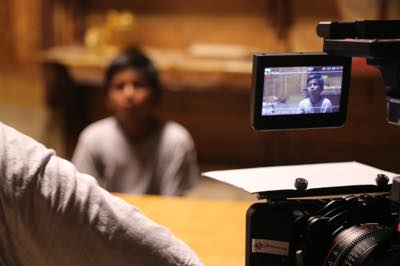
「Jagat」はマレーシア映画祭で、タミル映画としては初めて最優秀作品賞を受賞しました。(そして監督は最優秀新人監督賞を受賞しました)。どのように感じましたか。
“Jagat” won the best Malaysian film award and became the first Tamil film to be awarded the top prize in Malaysia Film Festival (and you won the best new director). How did you feel?
正直に言って、特に何も感じませんでした。とてもうれしいとも思わず、プレッシャーもなかったです。これは始まりであると受け止めました。ただ、将来の世代に、少なくとも一定程度は、境界を越えてアートを実践するための何かを貢献することができたので、安心したということはあります。一般の人々、特に非マレー系は、マレーシア映画祭(FFM)についてはあまり気にかけていません。なぜなら基本的にはマレー語をもとにした映画に贈られるからです。「Jagat」が、国語であるマレー語を使用した作品ではないという理由で、このカテゴリーから排除されそうになった時、マレーシア人の間で大きな論争になりました。人々、特に非マレー系の人々は、これまでよりもずっと映画祭に興味を持つようになったと思います。それをうれしく思います。
To be honest I feel numb, almost no much happiness or pressure. I took as a kickstart. But again it’s a relief that finally we contributed something for the future generation filmmakers to practice art without boundary at least for certain extend. The public especially non Malays don’t really care about the national film festival (FFM) since the national film is always based on Malay language only. When we were excluded from the category because Jagat is not in the official language which is Malay, it almost became an issue among Malaysians. People especially non Malays, started to show interest to festival more. Happy for that.
「Jagat」はマレーシアで9週間も上映が行われました(タミル映画、そしてその他の映画にとってもこれは非常に珍しいことだと思います)。また海外での映画祭でも上映が行われていますが、観衆からの反応はどうでしたか?
“Jagat” was screened in Malaysia for 9 weeks (and it’s very rare for a Tamil film and also for other films too), and in other countries too. What was the response from the audience?
私たちが、上映映画館に対する不満をメディアや大衆に訴えた時、心の中にあったのは、将来の映画制作者が同じ問題に苦しまなくてもすむように、問題を公にしたということでした。それが広まって、「Jagat」について口コミで伝わるようになるとは思っていなかったんです。
「Jagat」は大きな予算のある映画ではありませんし、マレーシア人全体に宣伝するようなお金はありませんでした。そのため最初はインド系の人たちだけを対象にしていたのです。しかしこの問題によって、全てのマレーシア人の観衆が私たちに注目するようになりました。
都市部では様々な民族の人たちがこの映画を見に来てくれました。実は都市部の人たちは国産の映画を見ることはあまり多くないと聞いています。
Golden Sceen Cinema (GSC)のような映画館も、数週間にわたって2つの劇場で映画を上映してくれました。そのうちの一館では9週間にも及びました。
マレーシアのインド系は、何十年にもわたってインドで作られたインド系の映画に触れているので、国産の映画をあまりみません。他の民族の人たちがタミル語の映画によい反応を示しているのを見て、彼らも驚いたようです。
Yes, when we went to the press and public to express our grievance towards the exhibitors, deep inside we wanted to register the problem so that the future filmmakers won’t be affected by the same problem. We didn’t expect it will become viral and help to spread the word about Jagat
As a small film we didn’t have much budget to advertise to whole Malaysian audience, hence we only targeted to Indian segment in the beginning, but the issue really brought us to the whole Malaysian audience.
Many urban audience from all kind of races went to watch the movie. I heard it’s a rare case for the urban audience to actually go and watch a locally made movies.
Even exhibitors like GSC extended 2 theatres for few weeks. One of it ran until 9th week.
The Malaysian Indians don’t really watch locally made movies, they have been exposed to Indian movies from India for so many decades. When they see other races responding well to a Tamil language film, it’s a shocking experience for them.
これまでに「Jagat」が上映された国(映画祭)を教えてください。大阪での反応はどうでしたか?
Can you tell us which countries (film festivals), “Jagat” was screened so far?
How was the response from the audience in Osaka?
- ニューヨークアジア映画祭(New York Asian Film Festival)
- ポーランド・ファイブ・フレイバー映画祭(Five Flavours Film Festival, Poland)
- ハノイ国際映画祭(Hanoi International Film Festival)
- ルアンパバーン映画祭(Luang Prabang Film Festival)
- コタキナバル映画祭(Kota Kinabalu Film Festival)
- シドニー・カラーフェスト(Colourfest, Sydney, Australia)
- バンガロール・東南アジア映画祭(Southeast Asian Film Festival, Banglore, India)
ニューヨークアジア映画祭のプログラマーの一人は、観衆に、「Jagat」が最も気に入った3本の映画のうちの1本だと言ってくれました。大阪も含めて、映画祭の観衆からは「Jagat」によってマレーシアのインド系の苦境がより理解できるようになったという感想も多かったです。それまではマレーシア人については何となくしか知らなったと。ハノイの通訳の一人は、自分自身も小さい時勉強をするように親からプレッシャーをかけられていたので、共感することができたと言っていました。またポーランドでメイキング・ビデオを撮影していた女性は、映画から大きな影響を受け、少数の登場人物だけで語られる手法に感心したと話していました。観衆の何人かは私のところに来て、これからどんな映画を作るか注目していきたいと言ってくれました。また大阪の観衆の中には、この映画が半自伝的なものであるのであれば、私が貧困やシステムから抜け出して、映画製作者になってうれしいという感想もありました。私が暴力や名声ではなく、アートを選んだことをうれしく思うと。
One of a programmer in New York Asian Film Festival mentioned to the public audience that Jagat is his top 3 favourite film. Generally in all the festival including Osaka the audience thanked that now they can understand the Malaysian Indian plight better. Earlier they only know a rough information about Malaysians. One of my translator in Hanoi told me that she could related the story well since her parents used to pressure her to excel in the studies and one of the making video camerawomen in Poland told me that the film made impact to her and she appreciated the way story being told using few characters. A few audience came and told me that they will closely follow my progress. Some audience even in Osaka told me that if the movie is a semiautobiography then they are happy that I could come out from the poverty and system and became a filmmaker. They glad that I’ve chosen the art instead of violence and fame.
大阪滞在はどうでしたか?「禅」の精神を見つけることができましたか?
How was your trip to Osaka? Did you find any Zen spirit there?
ずっと前から日本を訪れたいと思っていました。禅仏教と日本の文化が好きなので。私の制作会社は「Skyzen Studios」というんですよ。残念なことにあまり長く滞在することができませんでした。第一子の出産予定と重なってしまって、急いで帰らなくてはいけなかったんです。大阪では映画を見ただけで、十分に見て回ることができませんでした。いつか再び大阪と京都を訪問したいと思っています。
I always wanted to visit Japan for so long, since I’m a follower of Zen buddism and Japanese culture. Even my production house name is Skyzen Studios. Unfortunately I couldn’t spend much time there since I have rush back for first child’s arrival. Spent time in Osaka by watching movies only. Couldn’t explore Osaka to the fullest. I wish to come back anytime to Osaka and Kyoto.
今後の予定を教えてください。
Any future plan?
今後10年間で5つの映画/プロジェクトを考えています。今は2作目の映画の脚本を書いているところです。来年には公表できる予定です。
I already have 5 films/projects in mind for upcoming 10 years. As for now we are in midst of writing for the second film. Announcement will be made next year.
****************
取材・文 / 戸加里康子
日本マレーシア学会会員、マレー語通訳、著書に「旅の指差し会話帳 マレーシア」など。マレーシア映画祭最優秀作品賞「Leraki Harapan dunia(世界を救った男たち)」の日本語字幕、Polis Evoの字幕監修、2017年日本でも公開されたヤスミン・アフマド監督の「タレンタイム」の字幕監修など、マレーシア映画との縁も深い。
文/ Rie Takatsuka
[この記事の一部はWAU No.12(2017年6月号)から転載しています。]

